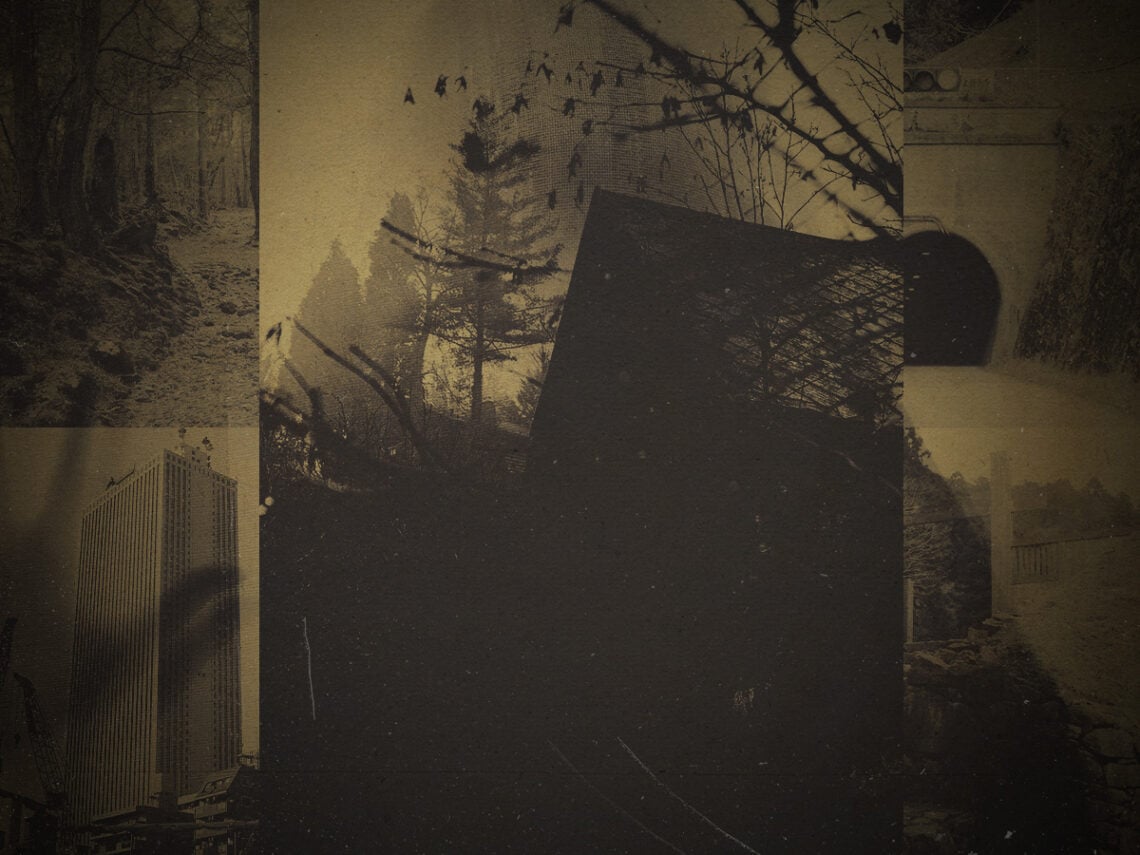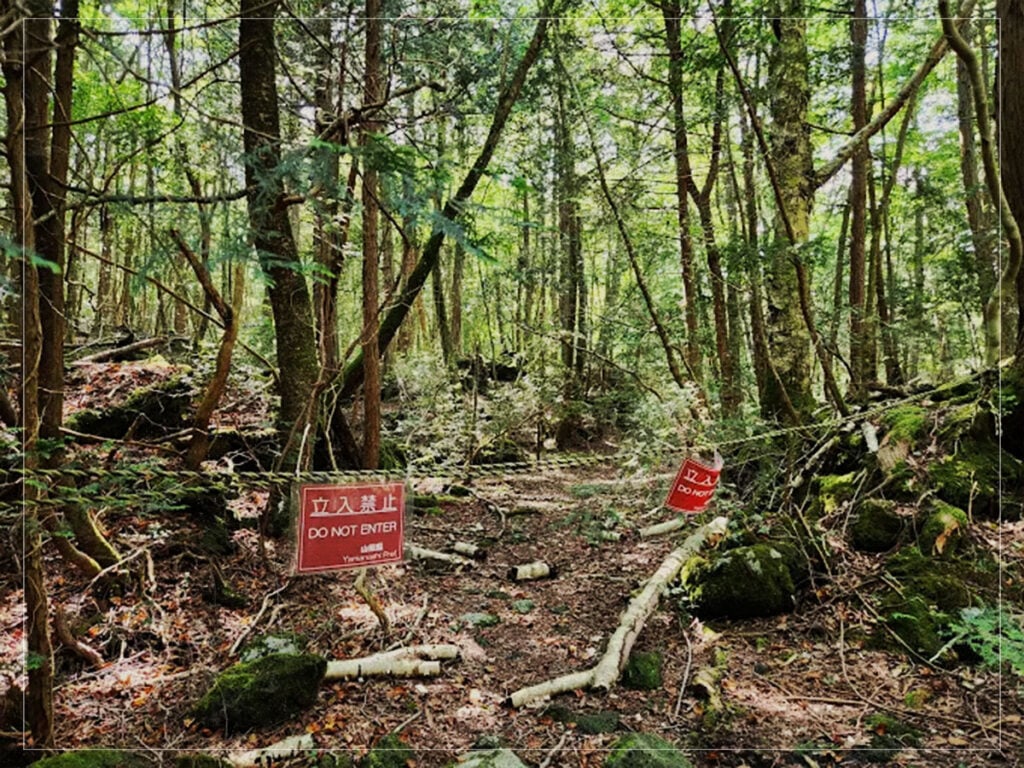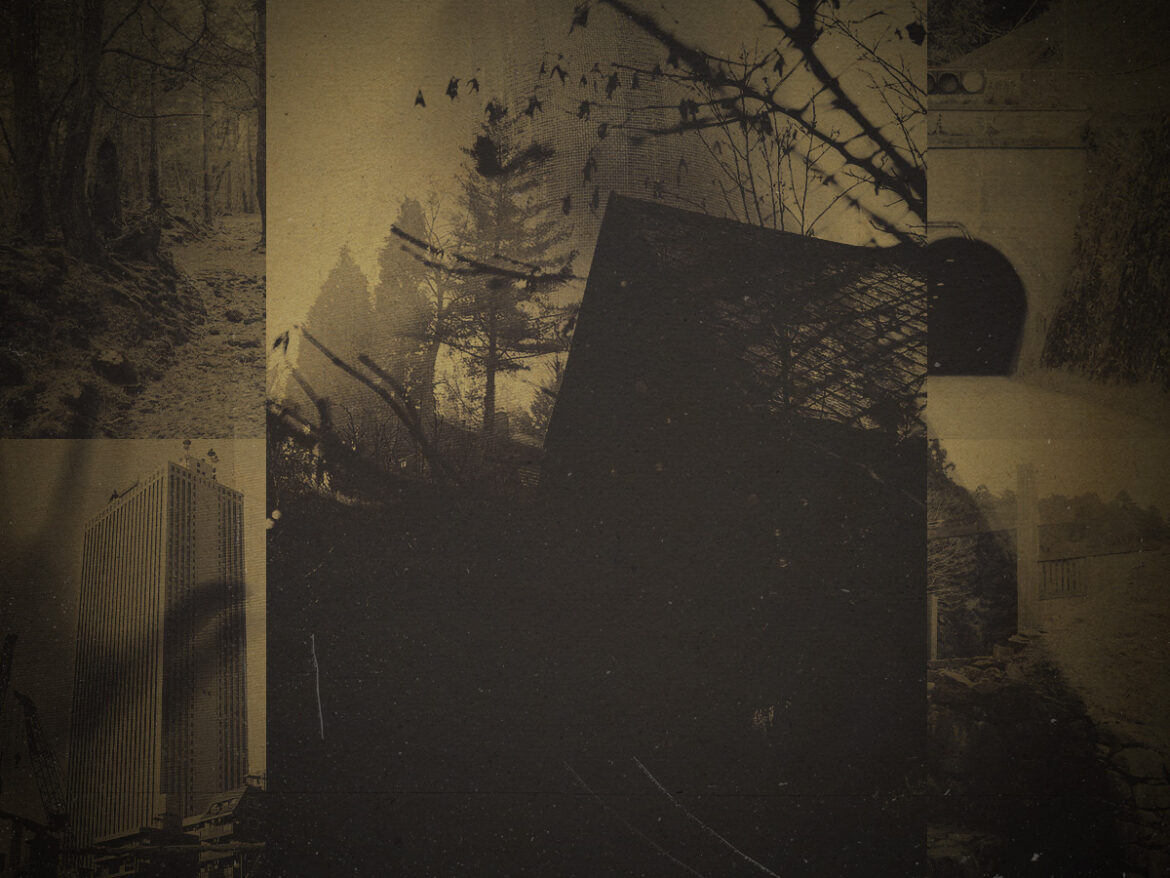
(Credits: Far Out / Public Domain)
Thu 4 September 2025 11:00, UK
There are many reasons to visit Japan: the food, the culture, the history, cats, anime, Mario Kart! Japan is one of the world’s most popular travel destinations and a true bucket list trip for many; however, one bizarre new trend in this dream locale has begun to circulate online, rearing its head as Japanese ghost tourism.
The country is a highly spiritual one, and the people are deeply ensconced in the concept of the meaning granted in death and legends surrounding spirits, as evidenced in their Manga, movies and video games. This originally comes from the Japanese Shinto religion’s doctrine of believing that everything has a spirit and that when a human dies, their spirit remains on the planet. In the case of people who die with regrets or meet a sad or terrifying end, their spirit is so full of grief that it often stays, lurking at the site of their demise.
The idea of ghost tourism is nothing new in Japan, with numerous locations said to be haunted and the sites of many deaths being visited by tourists hoping to feel something from another dimension.
It’s said that in the Edo period, people were drawn to visit temples, in part, down to the supernatural stories that were popular at the time. As Japan opened itself up to Western society and underwent industrialisation, this continued. Fascinatingly, the stories got intertwined with the modern fears and moved to railways and new buildings. Then, post-war, the notion of ghost tourism exploded and continued to grow culturally. Now you’ll even find ghost tours of all the major cities in the country, from Osaka to trips around the nightlife and the soaplands of Tokyo, along with a healthy dose orating all the unpleasant deeds that happened there.
Amongst the most haunted places is the Memorial Forest in Iwate Prefecture, which is a memorial for the unfortunate casualties of the All Nippon Airways Flight 58 that was involved in a horrible collision with a Boeing 727. Likewise, there’s the infamous Aokigahara Forest, otherwise known as the ‘Suicide Forest’, which has been written in lore from appearances in movies, novels and even a controversial Logan Paul YouTube video.
 Aokigahara Forest (Credits: Far Out / 大仁偉)
Aokigahara Forest (Credits: Far Out / 大仁偉)
There’s now a perfect storm due to the continued growth in ghost tourism and the Japanese economy, which has in turn impacted Japanese real estate.
As you would expect, there’s a stigma around spirits, and many people choose to avoid living anywhere with a history of death, be it suicide or murder. It’s now the case that real estate agents are expected to publicly list any horrific events that have taken place in a property for at least three years after a death. These homes are known as Wake-Ari Bukken, which roughly translates to troubled property. It’s said that prices of these properties can be discounted by 20%, or in the case of a murder, might even be as much as 80% below the market rate.
These public declarations often lead to reduced interest in ownership of such plots, and therefore, they might even allow somebody to get a great deal on a new flat. However, it’s not just prospective tenants or homeowners looking at these properties. The reported boom in ghost tourism has found a section of people using this as a questionable opportunity to look for spirits.
It’s said that these properties have an eerie atmosphere, with some even seeking out places in which bodies may have lain undiscovered for some time, hence still reeking of industrial-strength cleaning products with entirely new floors or wallpaper.
In a world in which every trip is now recorded on social media, and tourists are constantly looking for new experiences and new angles to view the world, it’s perhaps no surprise that some are looking to view beyond even the material world for novel thrills. Is this just an extension of the dark tourism trade, or is this something more sinister; whatever the answer, it’s not how most of us would want to spend our holidays.
Related Topics


AloJapan.com